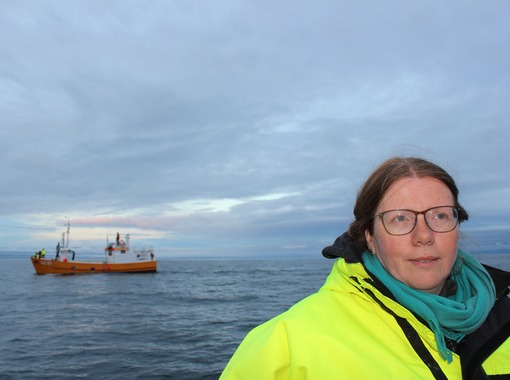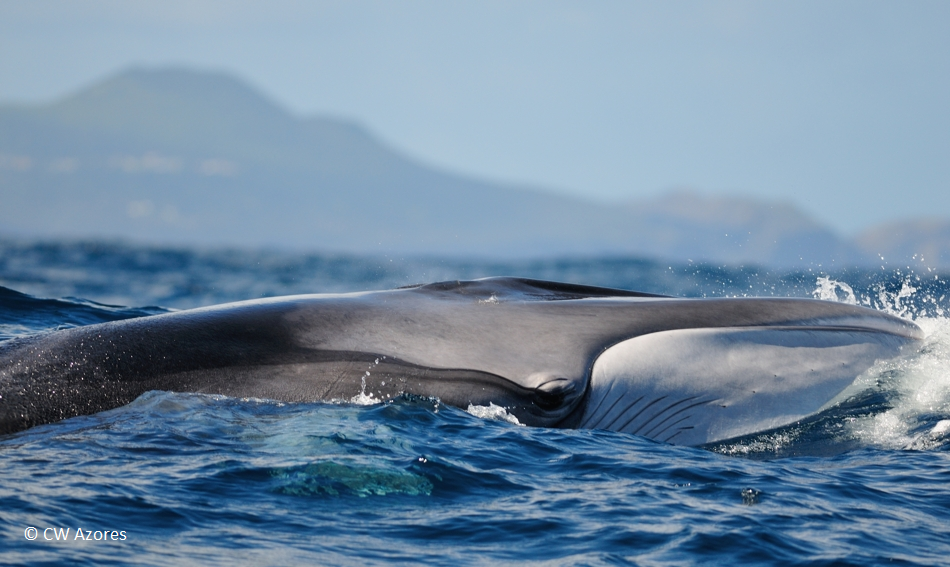- Citizen science activated in eWHALE
- Chosen out of 200 research projects that applied for an EU grant
Research scientists at the University of Iceland Research Centre in Húsavík are participating in a European research project called eWHALE, a transnational research project which brings together partners from science, industry and the public to establish a far-reaching, non-invasive cetacean and biodiversity monitoring system using water samples. Sampling for the research will in part be conducted during whale watching tours in Iceland, bringing in the citizen science aspect.
To effectively protect whales and other endangered marine species, it is necessary to emphasize conservation measures for entire marine areas. However, particularly relevant areas for the recovery and conservation of biodiversity, can only be identified if sufficient data are available which is exactly where eWHALE comes in.
"For some cetacean species, individuals cannot be distinguished from one another based on external characteristics. Tissue samples from whales are difficult to obtain and are therefore, not ideal for extensive monitoring," says Bettina Thalinger, PhD, from the Institute of Zoology at the University of Innsbruck who is leading the research project.
Environmental DNA used to monitor whales
Bettina and her colleagues plan on using a new and very exciting method in the study enabling them to better identify species, family groups, their diet, and possibly even single individuals. This involves the analysis of the eDNA (environmental DNA) contained in water samples using molecular biology. Bettina and other eDNA experts at the University of Innsbruck have considerable experience in using this method, and the same can be said about the research scientists at the National Institute for Ocean Science, Decode Unit Research – Ecosystem Dynamics and Sustainability in France, the Institute of Marine Research in Norway, and the University College Cork that also take part in the project.
Research scientists at the University of Iceland Research Centre in Húsavík bring extensive experience of a variety of whale research to the table, including identifying individuals within certain whale species, and have cooperated closely with local whale watching companies. Scientists at the Universidade dos Açores and Politecnico di Milano have similar experience and knowledge, but they are also partners in eWHALE. The role of these three participants will be to activate the public in connection with gathering samples in cooperation with whale watching companies.
People on whale-watching tours take part
A significant aspect of eWHALE is the involvement of people who have booked a whale-watching tour. "Sampling is easy and will be done during the whale watching tours." Together with the participating tour providers, we want to bring in the citizen science aspect," Thalinger explains. The eWHALE project is a wonderful extension of the educational aspect, and brings participants into direct contact with new technologies.
We will use our research vessel Arcpath to collect samples in Skjálfandaflói for analysis on eDNA as well as to take samples from whales and photgraph them. We will also work with the Whale watching company Norðursigling on the citizen science aspect," says Marianne Rasmussen, director of the University of Iceland Research Centre in Húsavík.

The project was launched last January and will take three years. A high number of samples will be taken over a large spatial distance from the Azores up to Iceland. The first sampling on the boats will start this spring with consecutive laboratory analyses scheduled to start in autumn. "We will then use the initial results to develop a monitoring strategy for 2024," says Thalinger, explaining the next milestones. "Our dream is to eventually be able to track individuals via their eDNA," says Bettina Thalinger.
Research in Skjálfandaflói and collaboration with Norðursigling
Marianne Rasmussen, director of the University of Iceland Research Centre in Húsavík, says that the project is very exciting as it comes with funding for equipment and hiring doctoral students. "We are testing wither we can use samples from the sea to analyse environmental DNA, eDNA, thus gaining, as Bettina points out, an "identification" of each whale of sorts in order to monitor each individual and compare to other whales. We will use our research vessel Arcpath to collect samples in Skjálfandaflói for analysis on eDNA as well as to take samples from whales and photgraph them. We will also work with the Whale watching company Norðursigling on the citizen science aspect," says Marianne.
The eWHALE project is funded under the Biodiversa+ initiative of the European Commission that has been running since October 1, 2021. As part of the European Union's Biodiversity Strategy 2030, Biodiversa+ aims to bridge the gap between science, policy and practice and provide insights for its planning and implementation. With its Biodiversity Strategy 2030, the European Union aims to ensure the protection and recovery of Europe’s biodiversity. A total of 209 applications were submitted for the fund and eWHALE is among the 36 projects chosen for funding.




